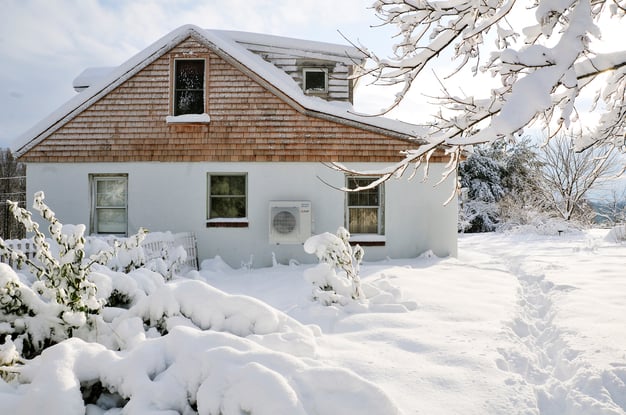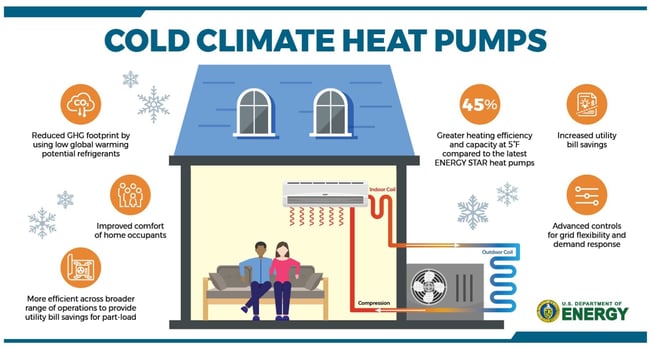As the winter months approach, homeowners often find themselves contemplating ways to protect their outdoor HVAC units, particularly heat pumps, from the harsh elements. One common misconception is that covering a heat pump is necessary to shield it from the cold, snow, and ice. However, HVAC experts advise against this practice. In this blog, we'll uncover the reasons why you should resist the urge to cover your heat pump during the winter months.
5 Reasons to Keep a Cover Off Your Heat Pump
 1. It's designed to withstand the elements
1. It's designed to withstand the elements
Heat pumps are robust and built to endure various weather conditions. Manufacturers design these units with materials that resist corrosion and damage caused by exposure to the elements. The housing and components of a heat pump are crafted to withstand rain, snow, and freezing temperatures, making them inherently resilient.
2. Proper ventilation is key
Covering your heat pump with a tarp or any form of insulation might seem like a protective measure, but it can lead to more harm than good. Heat pumps rely on proper ventilation to operate efficiently. By covering the unit, you risk trapping moisture, condensation, and heat, creating an environment conducive to corrosion and mold growth. This can compromise the unit's functionality and lifespan.
3. Ice accumulation concerns
While it's natural to worry about ice forming on your heat pump during winter, covering it is not the solution. In fact, covering can exacerbate the issue. When a heat pump operates in defrost, it generates heat, and this heat is essential for melting any ice that accumulates. Heat pumps will create ice during normal operation and run defrost cycles in time and temperature to ensure the ice does not continue to build up. Covering the unit inhibits this heat dissipation, potentially leading to more ice buildup, which can impede the heat pump's performance.
4. Rodent and insect infestations
A covered heat pump can provide a cozy shelter for unwanted guests such as rodents and insects seeking refuge from the cold. These pests can cause damage to wiring and components, leading to costly repairs. Keeping the unit uncovered reduces the likelihood of such infestations and ensures that your heat pump remains free from unwelcome visitors.
5. Warranty implications
Many HVAC manufacturers explicitly state in their warranties that covering the outdoor unit is not recommended. Deviating from the manufacturer's guidelines can void the warranty, leaving you responsible for any repair or replacement costs. To protect your investment, it's essential to adhere to the manufacturer's recommendations and guidelines.

Conclusion
While it might be tempting to cover your heat pump during the winter months as a precautionary measure, it's crucial to understand that these units are designed to withstand the elements. In fact, covering a heat pump can do more harm than good, potentially causing issues such as moisture buildup, ice accumulation, and pest infestations. To ensure the longevity and efficiency of your heat pump, follow the manufacturer's guidelines and leave it uncovered during the winter season. Your heat pump will thank you for allowing it to breathe freely and operate as intended.
If you live in the Delaware Valley/Greater Philadelphia area and would like to find comfort within your home, visit our website or give us a call at 215 - 245 - 3200 to learn more.





